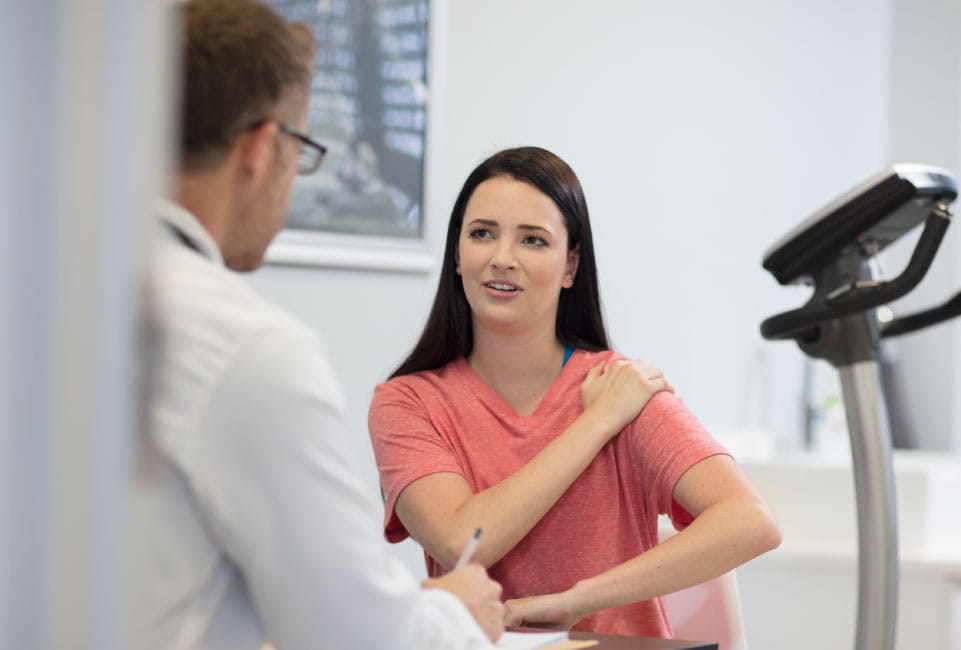
Image Source: Google
When it comes to maximizing your performance and preventing injuries, it is essential to seek advice from experts in the field. One such expert is a renowned shoulder specialist who has helped countless athletes, from weekend warriors to professional athletes, improve their performance and stay injury-free. With years of experience and expertise in shoulder injuries and rehabilitation, this specialist has a wealth of knowledge to share when it comes to training tips for optimizing performance.
One of the key training tips from this shoulder specialist is to prioritize proper warm-up and cooldown routines. Warming up before a workout helps to increase blood flow to the muscles, making them more pliable and reducing the risk of injury. A dynamic warm-up that includes exercises like arm circles, shoulder rolls, and shoulder stretches can help prepare the shoulders for the demands of the workout ahead. Similarly, a cooldown routine that includes static stretching and foam rolling can help to reduce muscle soreness and prevent stiffness in the shoulders after a workout.
Another crucial training tip from the shoulder specialist is to focus on strengthening the muscles surrounding the shoulder joint. The shoulders are a complex and delicate joint that is prone to injury, especially in athletes who engage in repetitive overhead movements like throwing or swimming. Strengthening the muscles of the rotator cuff, deltoids, and scapula can help to stabilize the shoulder joint and prevent injuries. Exercises like lateral raises, external rotations, and scapular retractions are excellent for targeting these muscles and improving shoulder stability.
In addition to strength training, the shoulder specialist also emphasizes the importance of proper technique and form during workouts. Many shoulder injuries can be attributed to poor form, such as rounding the shoulders during overhead lifts or overextending the arms during push-ups. By focusing on maintaining proper alignment and engaging the correct muscles during exercises, athletes can reduce the risk of shoulder injuries and maximize their performance. Working with a knowledgeable coach or physical therapist can help athletes improve their form and technique for optimal results.
When it comes to training for specific sports or activities, the shoulder specialist recommends tailoring workouts to the demands of the sport. For example, baseball pitchers may benefit from focusing on exercises that target the rotator cuff and deltoid muscles to improve throwing velocity and accuracy. Swimmers, on the other hand, may benefit from incorporating shoulder-specific exercises like internal rotations and scapular protraction to improve stroke efficiency and prevent shoulder injuries. By customizing training programs to address the unique needs of each sport, athletes can optimize their performance and reduce the risk of shoulder injuries.
Finally, the shoulder specialist stresses the importance of rest and recovery in any training program. Overtraining and inadequate rest can lead to overuse injuries and burnout, which can hinder performance and impede progress. Incorporating rest days into a training schedule, getting enough sleep, and practicing self-care techniques like icing sore muscles can help athletes recover more effectively and perform at their best. By prioritizing rest and recovery, athletes can prevent injuries and maintain a high level of performance over the long term.
In conclusion, by following these training tips from a renowned shoulder specialist, athletes can maximize their performance, prevent injuries, and achieve their fitness goals. By prioritizing warm-up and cooldown routines, strengthening the muscles surrounding the shoulder joint, focusing on proper technique and form, tailoring workouts to the demands of the sport, and incorporating rest and recovery into their training programs, athletes can optimize their performance and stay injury-free. Whether you are a weekend warrior or a professional athlete, these tips from a shoulder specialist can help you take your training to the next level and reach your full potential.
/cdn.vox-cdn.com/uploads/chorus_image/image/51867435/Eli_Preferred_Headshot.0.jpeg)